Faces of Climate Change
October 11, 2022
Written by: Samory Araújo, Head of Solutions Mapping, UNDP Cabo Verde Accelerator Lab
Cape Verde's vulnerability to climate change is manifested in several areas: for example, increased frequency and intensity of droughts, with losses in agriculture and threat to biodiversity; change in the hydrological regime, expansion of vectors of endemic diseases. Cape Verde is one of the countries that has contributed the least to climate change, but it's one of those who has suffered the most.
Women are often responsible for food, water, and fuel, which means that the scarcity of these resources has an obvious impact. The unequal impact of climate change on men and women in Cape Verde is mainly due to gender inequality and inequity that influences the control and access to goods, resources, services, and decisions making process.
Women from Achada Leite a story of resilience
A village located in the northwest of Santa Catarina, where people's lives depend on fishing, livestock, and agriculture. In this community, you can also observe the dynamism of the waves, as well as feel the local breeze, with a predominance of coconut trees and other species, it is inevitable to visit the rock or fusion, the natural sculpture resulting from marine dynamics, it is an excellent space to seek inner peace and be in contact with nature. Although the drought is a major challenge for the community. Years of severe drought and low rainfall, land degradation decreases the carbon storage capacity of soils and plants, which releases carbon into the air, and therefore contributes to climate change. This rural population lives on the dependence of an agriculture very conditioned by a climate that does not give them confidence, with irregular rains that dictate a random production system, depending on the variation of the rainfall regime.
A community whose ecosystem’s very fragile, plus persistent droughts, there is no other solution that fight for nature conservation, not only, to remake its ecological system as to conserve what is left.
And finally, it seeks to propose measures that contribute to transforming the landscape, improve people's quality of life and expand the recognition of the environment and sustainability - a way to promote regional balance in Cape Verde.
Land rights / access and ground control
Achada Leite is a community of 142 persons: 70 men and 72 women. Men have access and some control over the earth. Women have access, but they work the land in a division of harvest products. Women have no title/control over the land they cultivate.
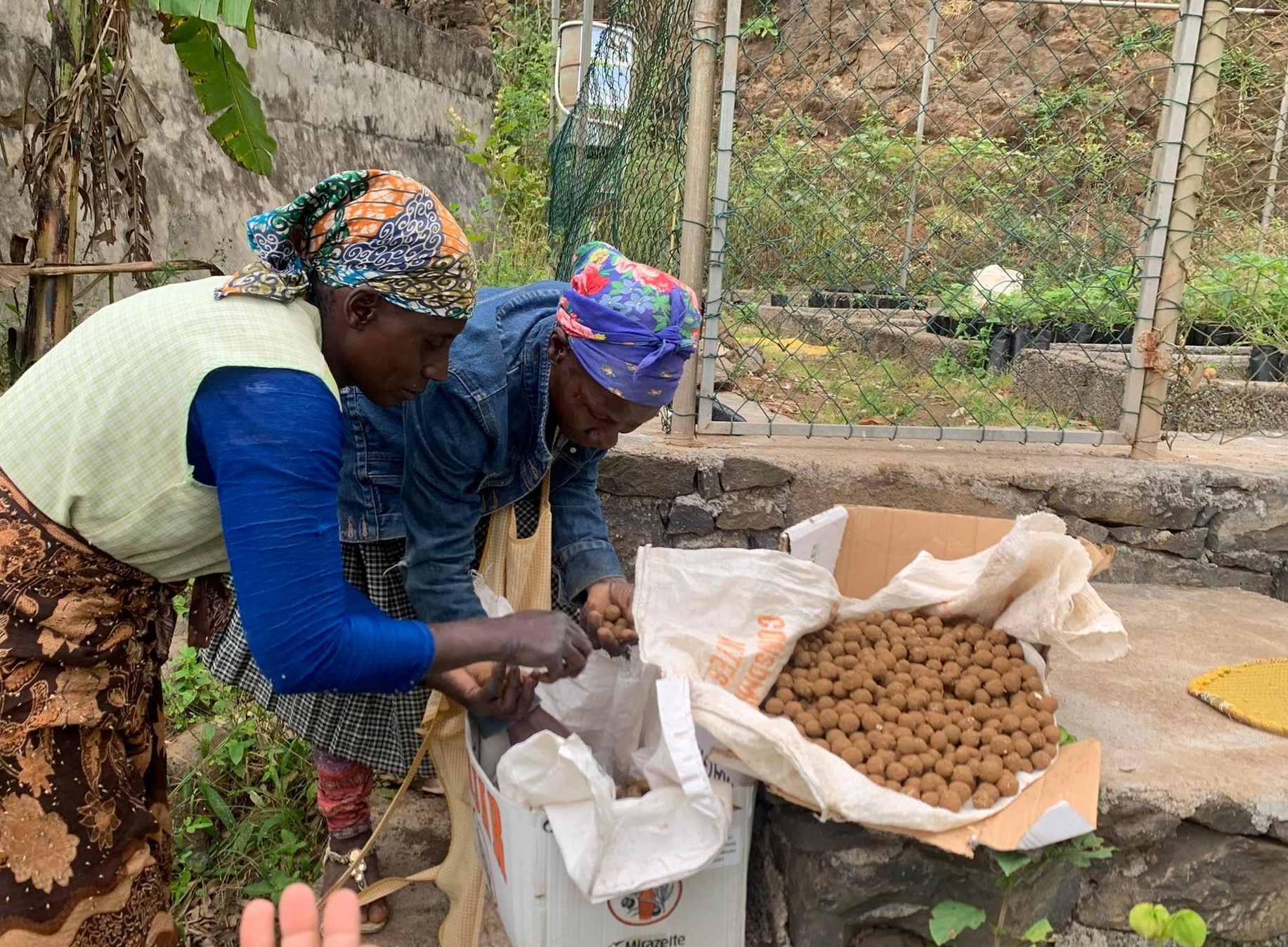
Access and Water Control: Gender inequality
When the Accelerator Lab team first arrive at the community for the implementation of Green islands project, the community was without water in the taps and with very conditioned access due to the breakdown in the pumping machine in the two holes in the community (domestic consumption and for agriculture).
The Water management – production, distribution, billing, and collection, is the responsibility of the local association, with a woman as the leader and president. Although a woman is a community leader at association level there´s still some gender-based conflict:
- Girls and women complain that farmers do not let them catch water and they complain that plants are drying up. (Restoring the machines would solve the problem, as each sector will resume its source of supply)
- Men have more access to water, greater control over what is done with available water and benefit (agriculture)
- Elderly: suffer more, the goodwill of the neighbors is always conditioned.
The water mobilization for irrigation and population consumption was conditioned to the acquisition of an inverter suitable for the pump installed in the hole, and during the implementation of Green Islands project the Accelerator Lab assumed the cost of acquiring the inverter; such acquisition has shaped the life of the community regarding water mobilization.
Access and control forest – The little "Forest" is one hour walk from the community. They use the “little forest” as a grazing area. Men and women from the community use the local for pasture for breeding and marketing of animals.
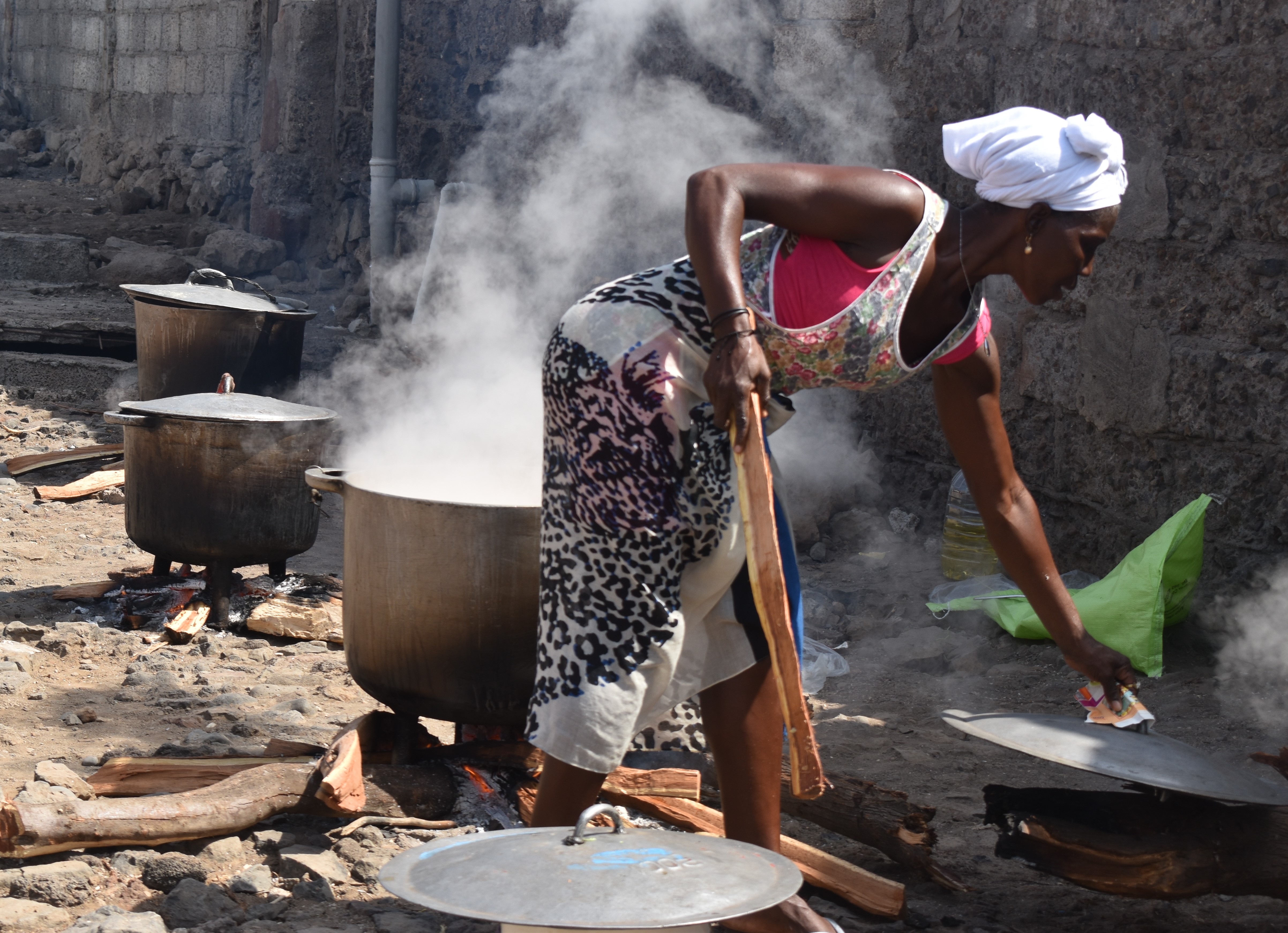
Occupations
In the community of Achada Leite the main economic activities are mainly agriculture and livestock farming.
Women from the community deal with breeding and marketing of small animals, farming, sale of agricultural products and animals, some have social support, most families receive remittances from the diaspora. The men from the community of Achada Leite are on the marketing of larger animals, irrigated agriculture, and brandy production; they are also responsible for artisanal fishing: with sticks, fish for family consumption, and some sale over community members.
The extraction of inert often main activity for women is in decline because, due to the deficient accesses the trucks these prefer to buy in women from Ribeira da Barca, another locality. The women also claimed physical exhaustion and health complications with causes for abandonment of the practice.
In relation to income men, have higher yield, they raise animals with better price, produce and sell brandy, do odd jobs. Women have low incomes, even if they have more, they buy a lot of things for the family and community, so it´d difficult for them to make savings.
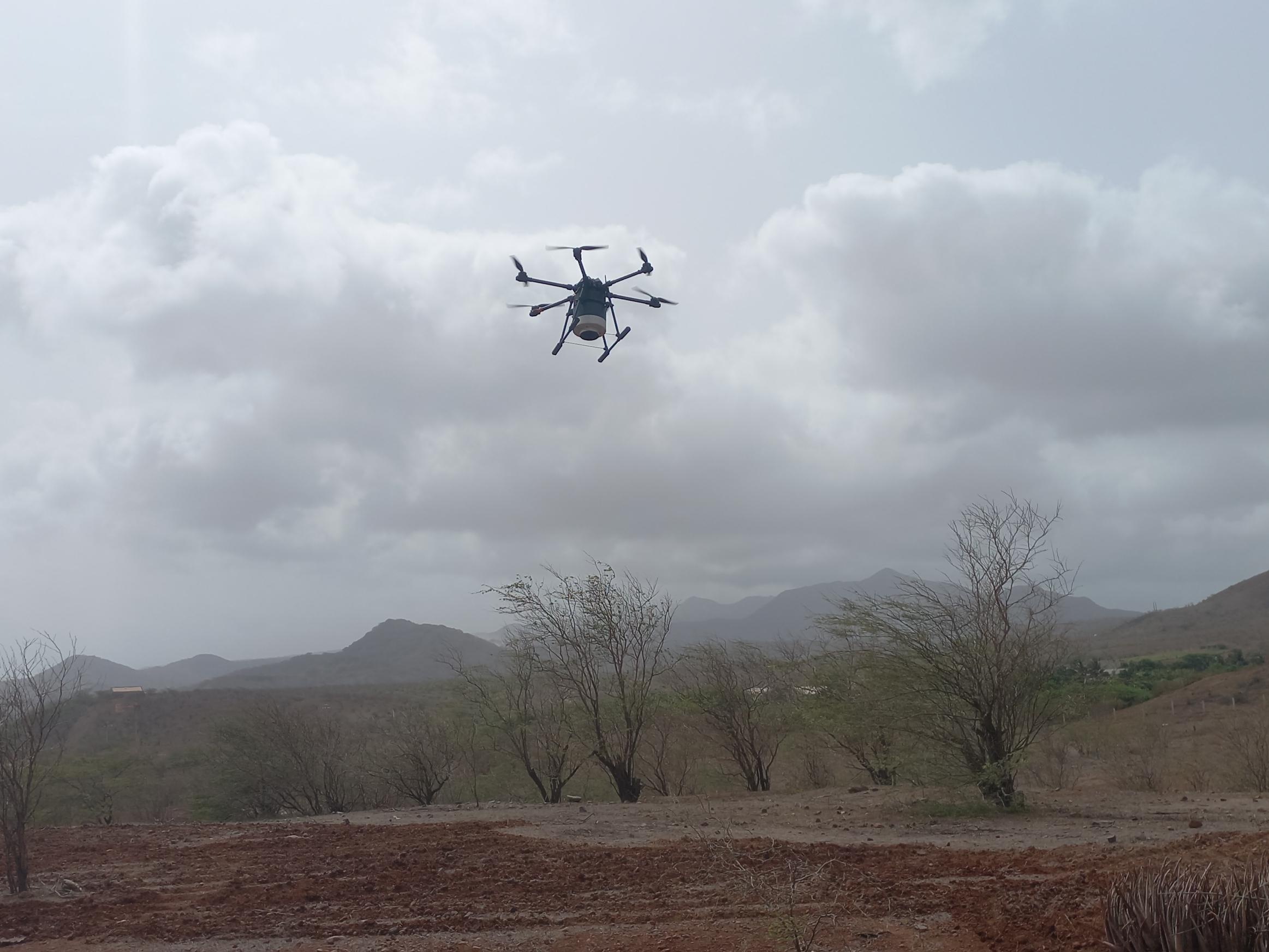
Technologies, Participation, and Voice
Regarding access to technologies in the agriculture only men in the community have access to drip irrigation. Meanwhile women who lead and boost the Association: 85.7% members of the Association are women. The leader and President is a woman: the board of the community association has two women and one man.
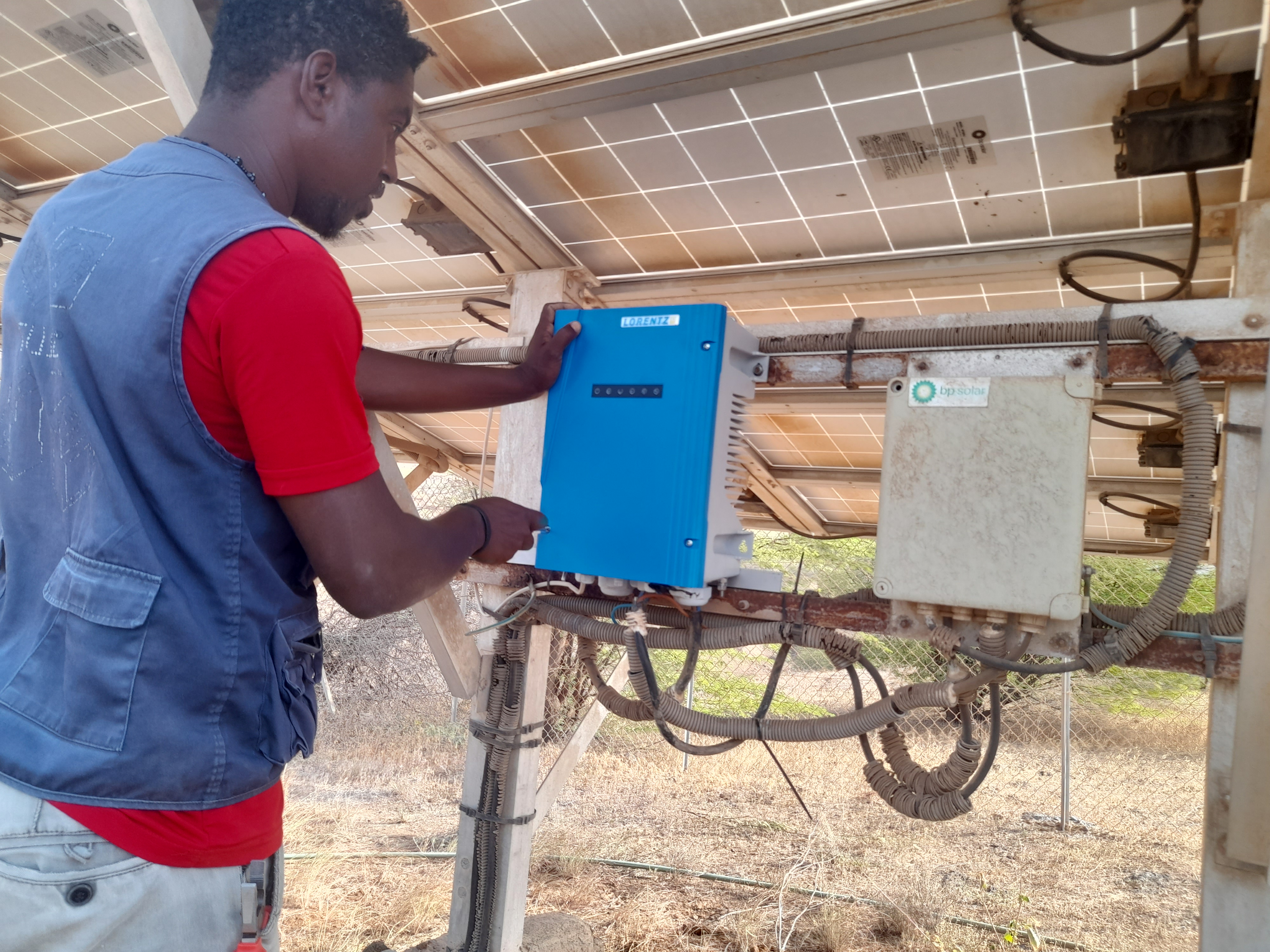
A solution with impact
The Achada Leite community is one of the two locations chosen to be implemented the Green Islands (is an Accelerator Lab team project implemented in November 2021 in partnership with the Ministry of Agriculture and Environment's REFLOR-CV project, funded by the European Union and FAO, to support the use of new technologies to combat desertification and promote reforestation). When the Lab team came to the community for the project, we found a community suffering from water shortages. One of reasons of water shortages for agriculture are that the controller/inverter for the solar pumping system of Achada Leite was damaged. The accelerator Lab Team decided to support the installation, connection, and placement of the controller after a joint agreement with the Local Association.
Almost one year after the installation and placement of the controller there was some social, economic, and environmental impact:
- Girls and women had more time to other occupations (normally they spent hours looking for water for consumption elsewhere)
- Availability of water for agriculture and animals (increased the local income)
- A better distribution of water and less gender inequality on the access (increased water mobilization has provided greater access to the local women)
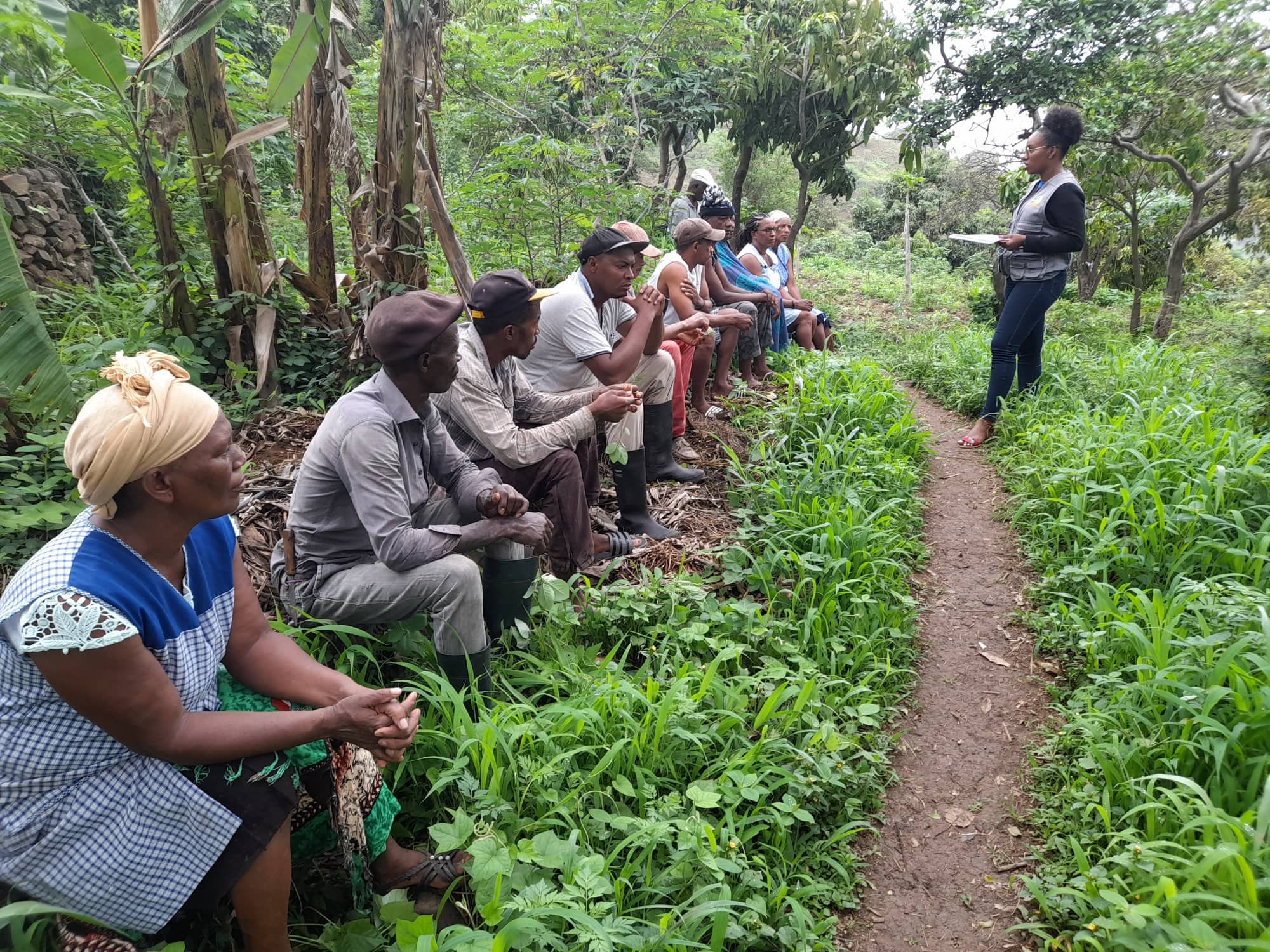

 Locations
Locations